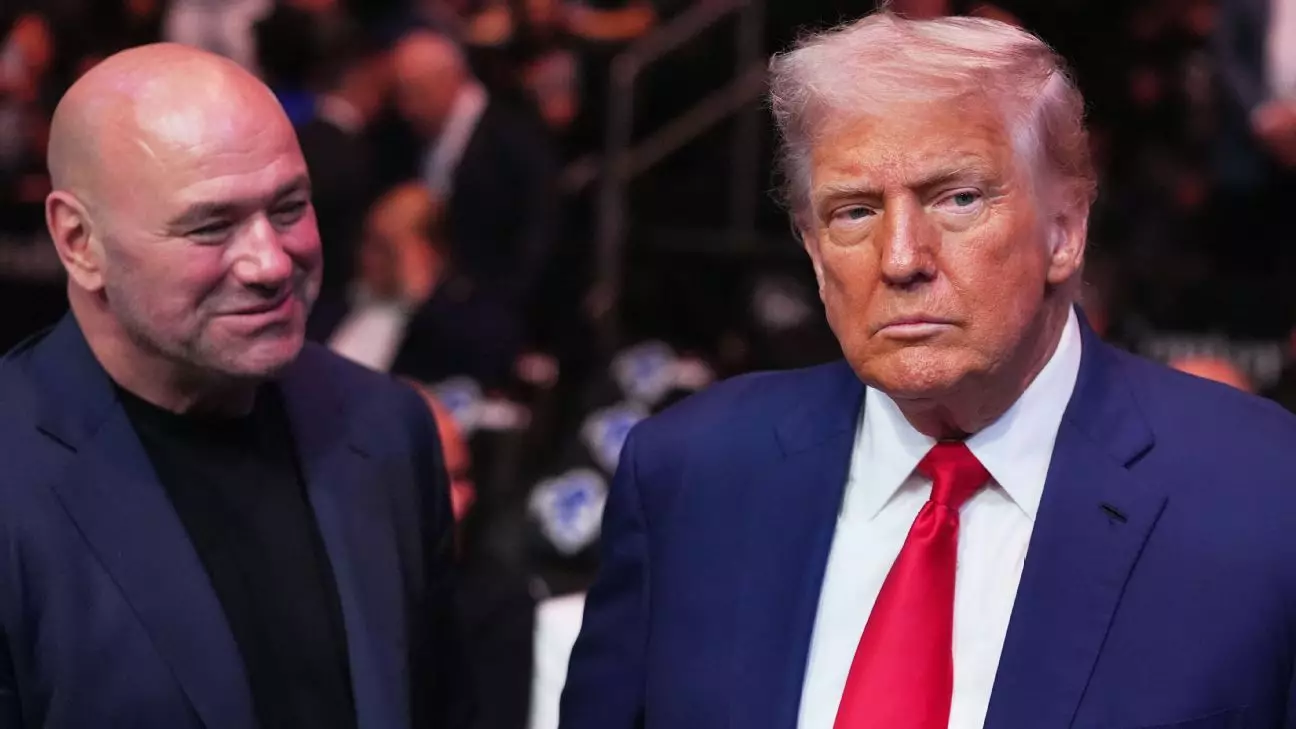The idea of hosting a UFC fight on the White House grounds marks a dramatic departure from traditional presidential celebrations, reflecting a shift towards entertainment-driven patriotism. President Trump’s proposal signals an ambition to intertwine America’s martial spirit with its national heritage, blurring the lines between political authority and popular culture. While historically presidents have participated in solemn ceremonies or national commemorations, this concept challenges those conventions, positioning the White House as a stage not just for diplomacy but for adrenaline-fueled entertainment. This daring move underscores a desire to connect with a broader, perhaps younger, demographic—using a high-octane sport to reinforce patriotic pride.
The Political Implications of Spectacle and Branding
Politically, Trump’s UFC proposal appears to be more than an isolated idea; it’s a calculated effort to leverage spectacle for nation-building and personal branding. The event promises to draw large crowds and media attention, showcasing the President’s affinity for martial arts and his close ties to UFC leadership. Such a spectacle could serve to reinforce a narrative of strength, resilience, and a defiant Americana ethos. However, it also raises questions about the appropriateness of politicizing entertainment at the highest level of government. While past presidents have used national celebrations for messaging, using a combat sport as a centerpiece risks trivializing the solemnity of remembrance and unity, turning patriotism into entertainment.
Risks and Opportunities of Turning the White House into an Arena
Envisioning thousands of spectators on the White House lawn is both audacious and provocative. It signifies an attempt to democratize the celebration—transforming what was once a reserved symbol of national gravity into a lively arena for fans and fighters alike. Yet, this bold diversification of tradition invites skepticism. Critics may view it as inappropriate, a spectacle driven more by ego and media engagement than genuine commemoration. On the other hand, if executed thoughtfully, the event can serve as a powerful statement about America’s enduring resilience—a nation proud enough to celebrate its past by showcasing its cultural vitality. The challenge lies in balancing entertainment with respect, ensuring the event elevates national pride without commodifying history or trivializing its sacrifices.
The Cultural Resonance and Future Impact
Ultimately, the UFC at the White House proposal reflects broader cultural shifts in how patriotism is expressed and celebrated. It signals a willingness to reimagine traditional ceremonies through the lens of modern entertainment, blending politics, sports, and spectacle into a unified narrative. While critics will argue that such displays risk reducing significant historical milestones to mere entertainment, supporters may see it as a fresh way to inspire engagement and foster unity. The success or failure of this attempt hinges on execution—whether it can honor America’s complex legacy while embracing its vibrant, diverse present. This proposed event, whether remembered as a stroke of genius or a misguided stunt, undeniably exemplifies the evolving landscape of American celebration and political spectacle.


Leave a Reply